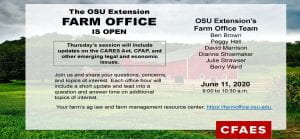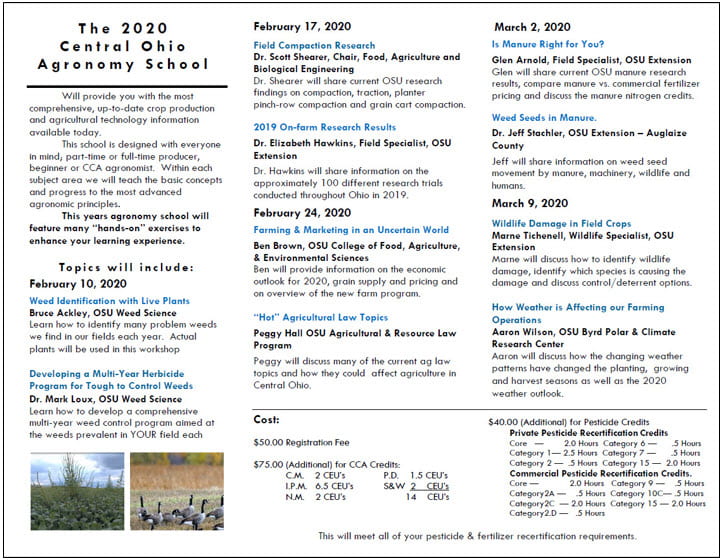Source: Ben Brown & David Marrison, OSU Extension
 On April 17, the preliminary details about the Coronavirus Food Assistance Program (CFAP) were released by the U.S. Department of Agriculture (USDA) program aimed to assist farmers, ranchers, and consumers in response to the COVID-19 pandemic. The CFAP provides $19 billion in funds authorized through the Coronavirus Aid, Relief, and Economic Security Act (CARES).
On April 17, the preliminary details about the Coronavirus Food Assistance Program (CFAP) were released by the U.S. Department of Agriculture (USDA) program aimed to assist farmers, ranchers, and consumers in response to the COVID-19 pandemic. The CFAP provides $19 billion in funds authorized through the Coronavirus Aid, Relief, and Economic Security Act (CARES).
The $19 billion program includes two major elements. The first element is for Direct Support to Farmers and Ranchers. This program will provide $16 billion in direct support to farmers based on actual losses where prices and market supply chains have been impacted by COVID-19. The program will also assist producers with additional adjustment and marketing costs resulting from lost demand and short-term oversupply for the 2020 marketing year caused by COVID-19.
It has been reported, although not confirmed by the USDA, that in the direct support program, $5.1 billion will be allocated to support cattle producers, $3.9 billion for row crop producers, $2.9 billion for dairy, $2.1 for specialty crops, $1.6 billion for hog producers and $500 million for other commodities.
The Chairman of the Senate Agricultural Appropriations sub-committee has indicated the direct assistance to producers will be one payment comprised of the sum of two parts. The first part is 85% of the losses incurred between January 1 and April 15, 2020 per commodity. The second part will be 30% of the loss in market prices due to COVID-19 between April and the next two quarters. Secretary Perdue has expressed that payments are intended to be made by end of May or early June. To qualify for a payment, a commodity must have declined in price by at least 5% between January and April 15, 2020. While there are several entities illustrating price declines including The Ohio State University, the price series USDA will use to determine eligibility is uncertain. Federal payment limits apply, set at $125,000 per commodity with an overall limit of $250,000 per individual or entity. USDA has indicated that CFAP may take into consideration other farm program benefits regarding payment limitations, which could limit CFAP payments in the case a producer is receiving payments in other federal safety net programs. The exact program limitations and qualifying support are unknown at the present time. The direct payment program will be administered by the Farm Service Agency. More details will be forthcoming by the Farm Service Agency in the upcoming weeks. Access more information at: https://www.fsa.usda.gov/
Continue reading USDA Announces Coronavirus Food Assistance Program (CFAP) →
 OSU Extension is pleased to be offering the a “Farm Office Live” session on Thursday morning, June 11 from 9:00 to 10:30 a.m. Farmers, educators, and ag industry professionals are invited to log-on for the latest updates on the issues impact our farm economy.
OSU Extension is pleased to be offering the a “Farm Office Live” session on Thursday morning, June 11 from 9:00 to 10:30 a.m. Farmers, educators, and ag industry professionals are invited to log-on for the latest updates on the issues impact our farm economy.







